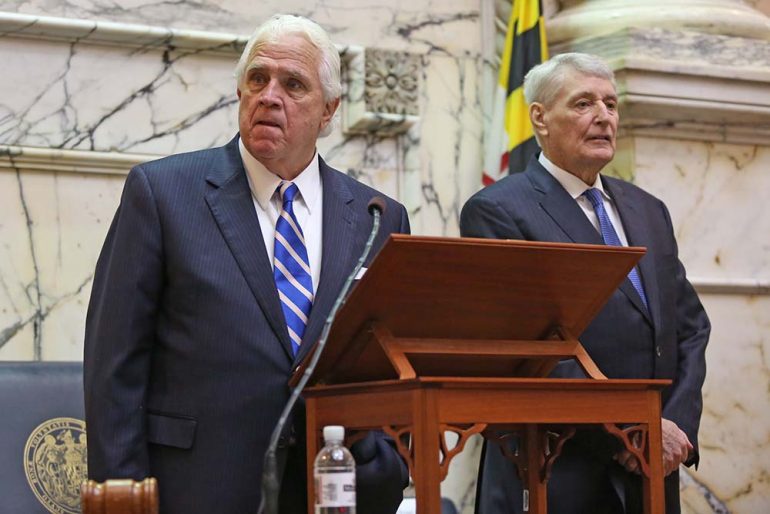ANNAPOLIS, Maryland — Maryland lawmakers voted Thursday to override Gov. Larry Hogan’s veto of a bill that would specify which measures could be considered when determining a school’s quality, prohibiting student testing from being one of them.
The bill restricts the state’s ability to intervene in failing schools, which opponents worry is intended to limit the creation of charter schools and voucher systems.
The House of Delegates passed the override of the governor’s veto 90-50, and the Senate passed it the same day, 32-15.
Hogan, a Republican, vetoed House Bill 978, known as the Protect Our Schools Act of 2017, Wednesday, saying the bill weakens school accountability, according to a release from the governor’s office. In the press release, Hogan urged legislators to put aside politics and sustain the veto.
The Maryland State Board of Education and the Maryland State Department of Education have sided with the governor in opposition to this bill, according to the release.
Thursday morning, advocates for the bill gathered at a rally to call for an override. Those present included representative from the Maryland State Education Association, the Maryland Parent Teacher Association and some lawmakers.
The bill would help accommodate the needs of the students and allow parents to be involved in the process, Delegate Mary Washington, D-Baltimore, told the University of Maryland’s Capital News Service. “We need to do more to end disparities (in education) … we cannot do that giving control to the state,” Washington said.
Bill Sponsor Delegate Eric Luedtke, D-Montgomery, acknowledged the common goal that both sides of the argument shared. “I’m glad we can agree every kid deserves a good education,” Luedtke said on the floor.
Although the State Board of Education opposes the bill, people who are involved in the everyday lives of children, like teachers and parents, support the bill, according to Luedtke.
Multiple delegates opposed to the bill referred to it as a “status quo” initiative on the floor, saying the bill will not bring any noticeable change that would benefit students.
Delegate Nicholaus Kipke, R-Anne Arundel, the House minority leader, said on the floor that this bill is not complicated.
“It traps students in failing schools and lessens accountability in the bureaucracy in education,” he said. Kipke made a point to say the legislation is regressive and takes tools away from the state.
Since both chambers voted to override the governor’s veto, the bill will become law July 1.

